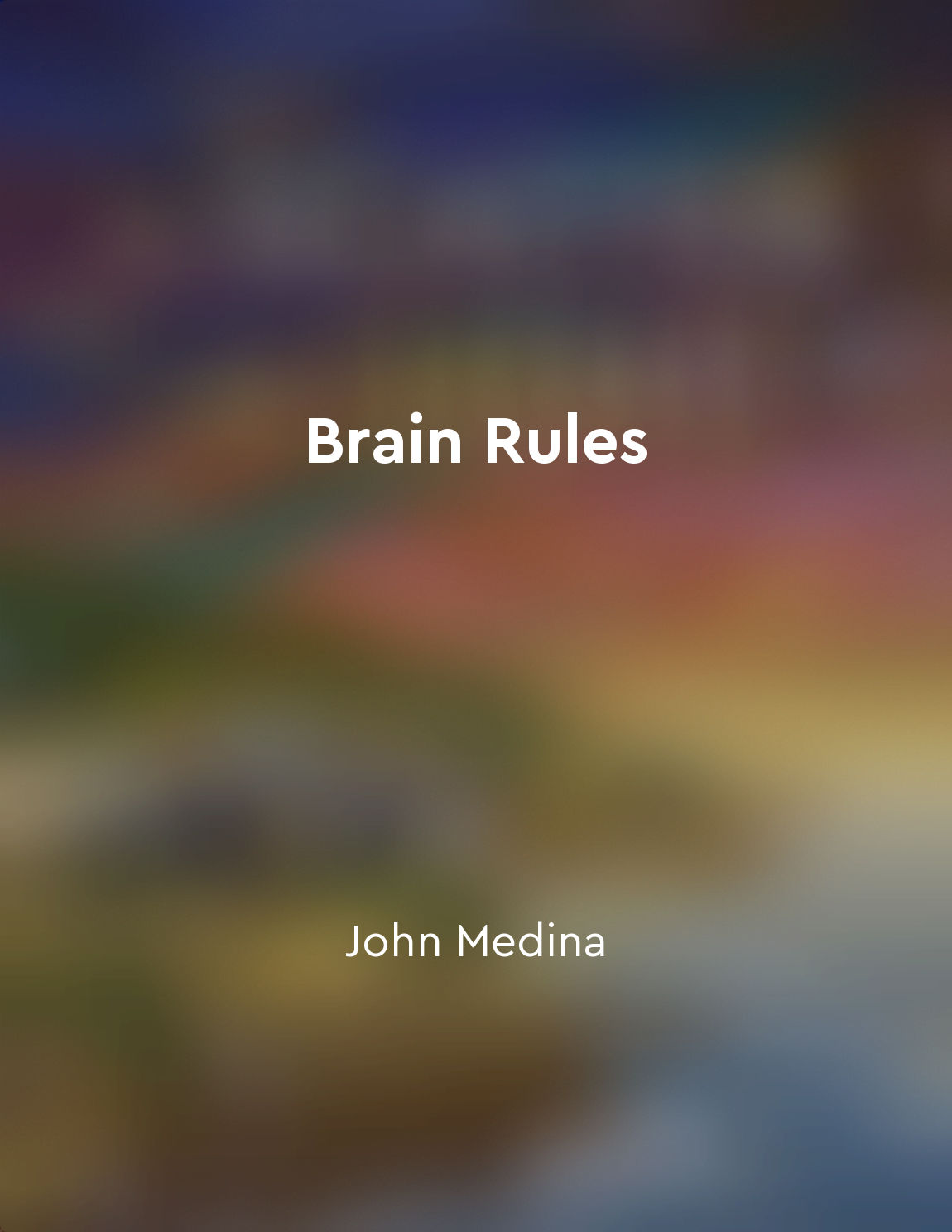Perception shapes brain function from "summary" of Discovering the Brain by National Academy of Sciences,Institute of Medicine,Sandra Ackerman
The brain is a remarkable organ that is constantly adapting and changing based on the experiences we encounter. One of the key factors that influences this adaptability is perception. How we perceive the world around us has a direct impact on how our brain functions and develops. Perception is the process by which our brain interprets sensory information from the environment. This sensory information is then processed by different regions of the brain, leading to the formation of our perceptions. These perceptions, in turn, shape how our brain functions in response to the stimuli it receives. For example, if we perceive a situation as stressful or threatening, our brain will respond by activating the stress response system, leading to the release of stress hormones such as cortisol. This physiological response is a direct result of our perception of the situation and has implications for our overall brain function. On the other hand, if we perceive a situation as safe and enjoyable, our brain will respond by releasing neurotransmitters such as dopamine, which are associated with feelings of pleasure and reward. This positive perception can have a beneficial impact on our brain function, leading to improved mood and cognitive performance.- Perception plays a critical role in shaping brain function. Our perceptions influence how our brain processes and responds to the world around us, ultimately shaping our thoughts, emotions, and behaviors. By understanding the impact of perception on brain function, we can gain insights into how our experiences shape our brains and ultimately our lives.
Similar Posts
Communication is key to building relationships
The bedrock of any relationship is communication. It is the glue that binds individuals together, allowing them to connect on a...

Tissues are formed by groups of cells working together
Tissues are the fundamental building blocks of the human body. They are made up of groups of cells that work together to perfor...
Limiting multitasking can enhance focus
In our fast-paced world, we have become accustomed to juggling multiple tasks at once. We pride ourselves on our ability to mul...
Selfawareness is essential for self-control
Self-awareness is like a spotlight shining on our thoughts, feelings, and actions. It allows us to see ourselves clearly and un...

Chronic stress can lead to health problems
Chronic stress is a pervasive issue in our modern society. It can stem from a variety of sources, such as work pressures, finan...
Nurturing a compassionate worldview
Developing a compassionate worldview involves cultivating a deep sense of empathy and kindness towards others. It goes beyond s...
Creating a secure attachment with children
Creating a secure attachment with children is essential for their emotional well-being and development. When children feel secu...

Longterm memory is often sustained by repetition
Longterm memory is often sustained by repetition because the brain is constantly looking for patterns. When the brain detects a...
A healthy diet rich in antioxidants can protect brain cells
Eating well isn't just about keeping your body healthy - it's also vital for your brain. And one key element of a brain-boostin...

Hormone balance is key to brain health
Hormones play a crucial role in every aspect of our health, including our brain function. When our hormones are out of balance,...

